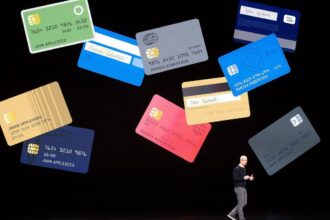The White House will propose a rule intended to lower credit card late fees to approximately $8.
The Consumer Financial Protection Bureau (CFPB) will propose the rule at President Biden’s fourth Competition Council meeting.
BIDEN CLOSES REMARKS ON ‘JUNK’ FEES: ‘I APPRECIATE THE FRUSTRATION OF THE AMERICAN PEOPLE’
“Over a decade ago, Congress banned excessive credit card late fees, but companies have exploited a regulatory loophole that has allowed them to escape scrutiny for charging an otherwise illegal junk fee,” CFPB Director Rohit Chopra said in a press release. “Today’s proposed rule seeks to save families billions of dollars and ensure the credit card market is fair and competitive.”
The Biden administration claims the steep price of late payments is utterly disproportionate to the low costs they place on the credit card companies.
“Specifically, the proposed rule would lower the immunity provision for late fees to $8 for a missed payment as well as end the automatic annual inflation adjustment,” the CFPB announced. “The proposed rule would also ban late fee amounts above 25% of the consumer’s required payment.”
CREDIT KARMA, HOMEADVISOR PUSH BACK AFTER FTC ORDERS BOTH TO PAY MILLIONS

This is the latest step in President Biden’s stated initiative to combat “junk fees” that unfairly prey on unwitting consumers.
Last year, in a bid to give U.S. families more “breathing room,” the White House called on “all agencies to reduce or eliminate hidden fees, charges and add-ons for everything from banking services to cable and internet bills to airline and concert tickets.”
Biden has offered examples of junk fees his administration is seeking to eliminate for consumers, including airline rebooking fees, hotel “resort” fees and unfair banking penalties.
“Each year, these junk fees, in addition [to what] companies charge, cost Americans tens of billions of dollars — weighing down family budgets and making it harder for people to pay their bills,” Biden said at a 2022 press conference. “So my administration has taken action to eliminate these fees.”
Read the full article here










